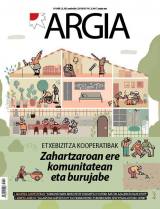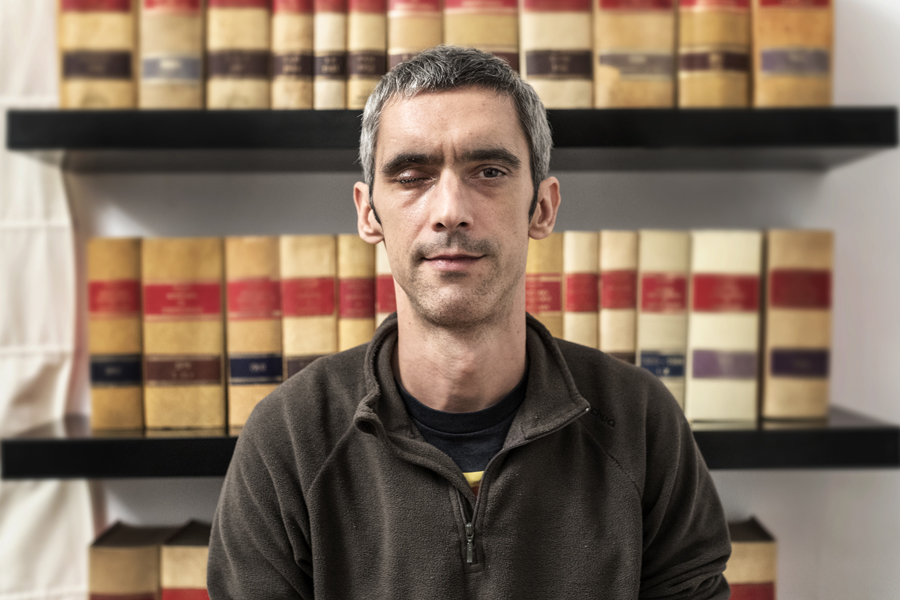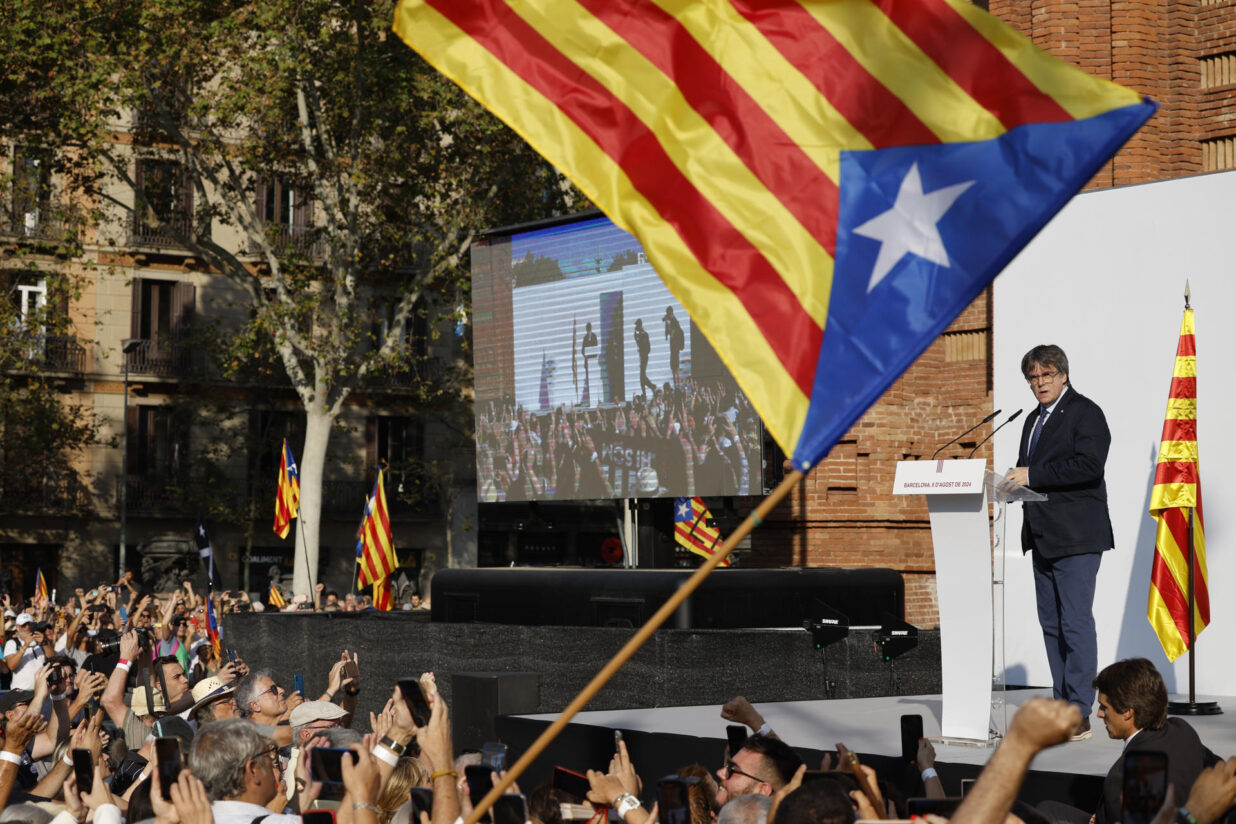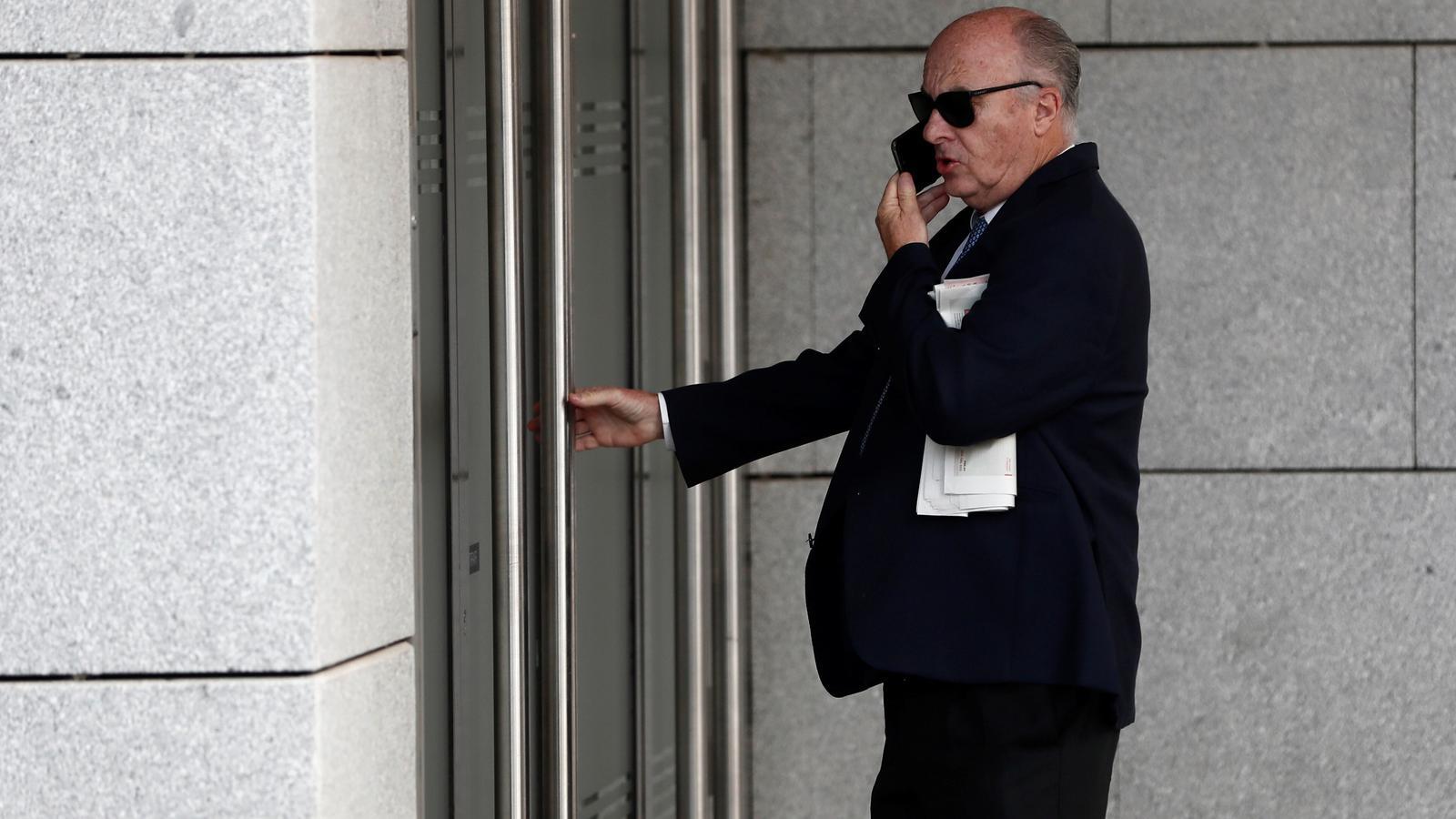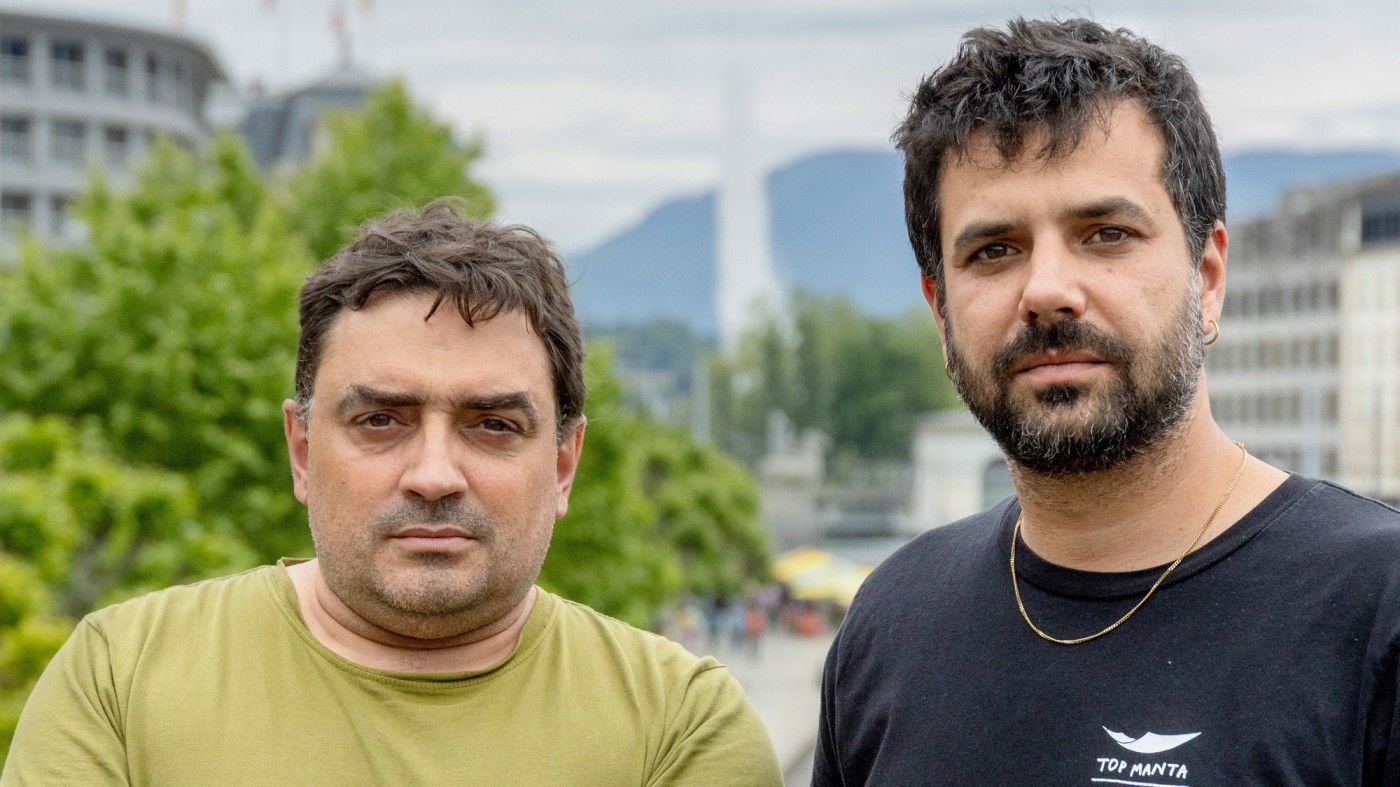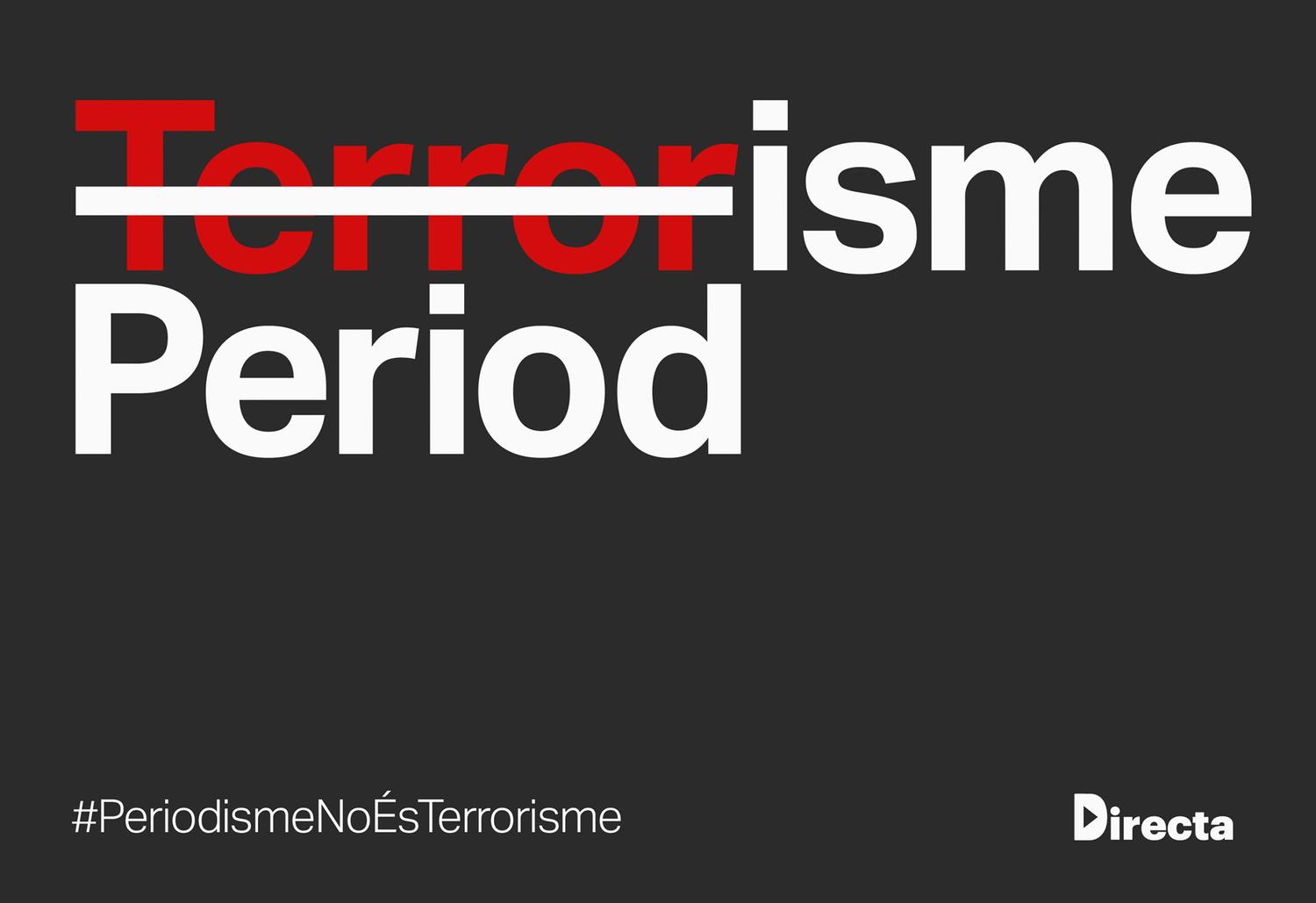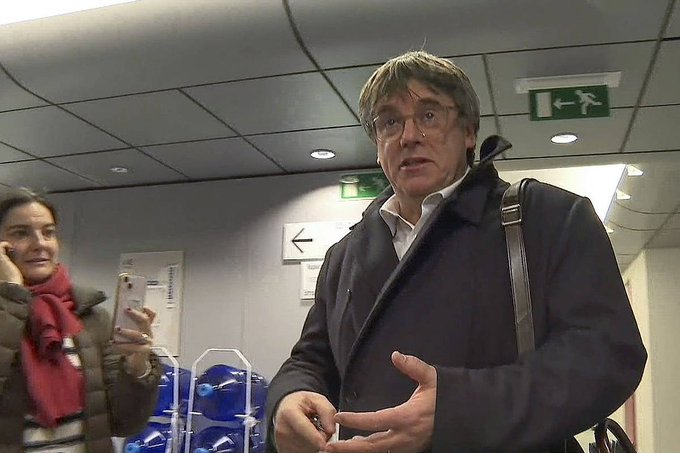"A charismatic leader is missing to advance with the Republic"
- Born in Badalona in 1942, he has been working for more than four decades on the Catalan independence left, which currently resides in Barcelona. He is not a member of the Cup, but he was a member of the Cup in the September 2015 general election. It also has a broad trajectory in the world of literature, but on this occasion we have brought to these pages a very specific moment: the referendum of 1 October and the claim of the Republic. The interview was held on the eve of the election day, on 20 December.
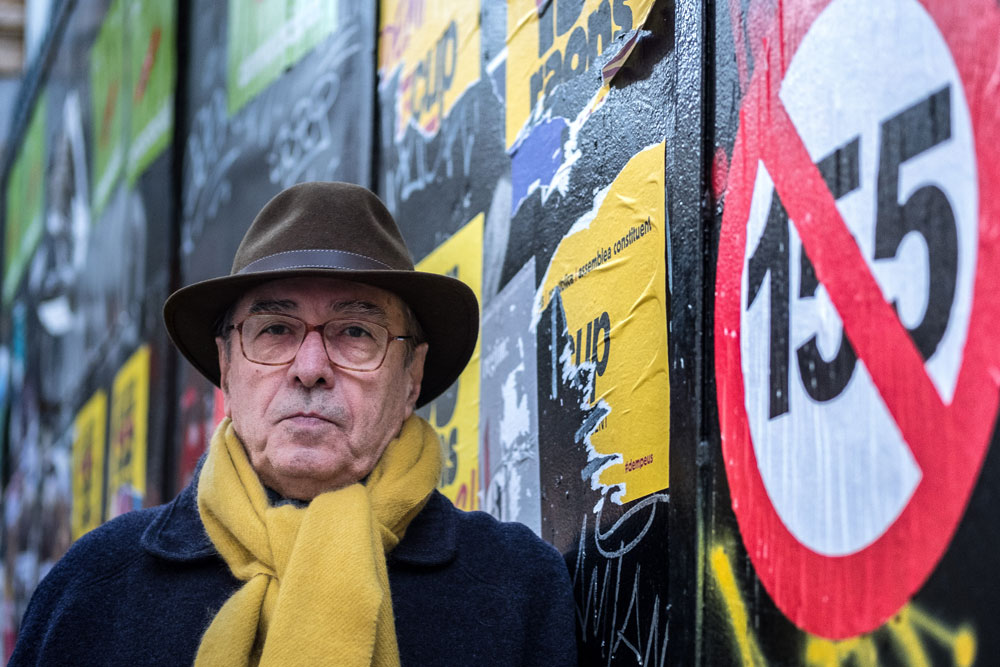
In January 2015 he ceased to be a member of the Cup in the Parliament of Catalonia by resigning Artur Mas to the presidency of the Generalitat, after the veto of the Cup. In the agreement between Junts Pel Yes and the Cup, two members of the Cup also had to resign, one of whom was Julià de Jòdar, and the other member of Junts Pel Yes. However, his march had nothing to do with that matter, because he had agreed with the Cup that Parliament would leave, not later than in January: "I was with a condition, I didn't go on the lists; that's why I was seventh on the Barcelona list, but it was a surprise and I left the list. They all joined Mas later, but mine was already agreed.”
The time when Mas had to leave his candidacy was very complicated. How did you experience it?
But he was the man of the cutbacks, chosen by Pujol, and the Cup did not like at all to have to collaborate with him. There was a huge controversy within the Cup, it managed to force Mas to leave, and I thought it was very good.
Could he have come with Mas to the referendum on 1 October or to the proclamation of the Republic on 27 October?
No. You'd cut it before. Carles Puigdemont is an older independentist, and since the age of 17 he has been an independentist. The PdCAT was doing well for a person like that, they didn't allow ERC to be done with independence in its entirety. At the same time, Puigdemont was a party man – the mayor of Girona – who guaranteed the interests of the PdCAT. But it's more linked to the era of Puigdemont's corruption than to Pujol's. If there had been Mas, class interests would have been imposed on the issue of independence. Before that they would have reached an agreement with the Government of Spain. Collaboration with the Cup would not have been possible with Mas.
On 1 October a revolutionary situation was experienced in Catalonia. On 27 October the Catalan Republic was proclaimed, but by then the balloon was already empty. What happened during that time?
I have been very critical of associations like ANC and Omnium, have not generated strong autonomous leadership with the autonomic institutions and have been trapped in their networks. Carme Forcadell was the first president of the ANC and is currently on ERC's lists; Jordi Sànchez, the second, has been on JxCat's lists. In the ANC, alternation has also been significantly imposed.
On October 1, the organizers of the festival surprised the three great successes. A few days earlier, Jordi Sánchez had already said that he was pleased to have come to vote for a million citizens. The vote was taken with 2.3 million voters, while the Civil Guard and the National Police held another 700,000 kidnapped votes. In other words, a total of 3 million votes danced that day, three times more than they expected, and the Government and the entities were not prepared to keep that crowd in the street.
On 20 September, however, there was a very clear notification on the street. Both jordis walked with the people, but they've always said the situation was under control.
They believed that when the Civil Guard or the National Police began to withdraw the ballot boxes, people would go back and they wouldn't vote.
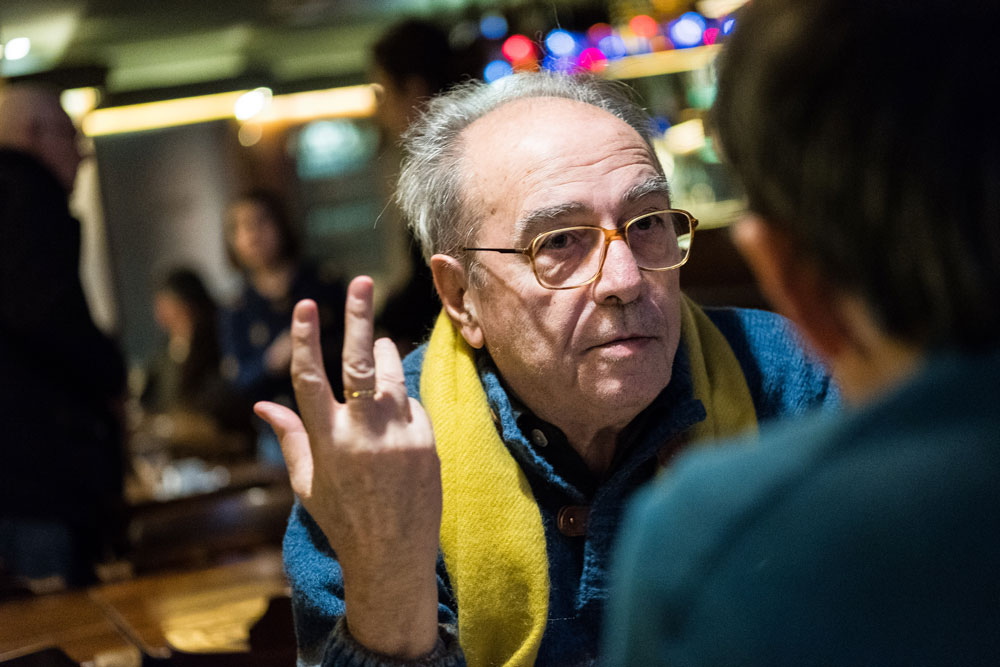
I read that the criterion was to form a line to go and vote.
It had to be done, but people didn't queue, they had built fences at the gates of the schools. The attitude of our authorities was even greater, while at the same time looking at the challenge remotely.
What you did see was that the Mossos had the order not to intervene. That is also a challenge.
Yes, they had that order, our Government did not want a conflict between the citizens and the Mossos; nor did it want a conflict between the Mossos and the Civil Guards and the National Police. But there was a lack of courage for the referendum to be clear. The ballot boxes, for example, were kept by civilians, not by members of the Government, but by the authorities. The citizens carried out the whole operation and paid it. The Government stopped doing and facilitating all this, but did not foresee the massive and forceful participation of the people.
You speak of a lack of determination, but that Government was preparing for the consultation for months: The Referendum Act, the Transitional Act, the tax collection institution… It’s hard to think I didn’t want to do it.
When on 1 October the citizens took the political space of the street, that power was held by the people, but the people cannot carry it forward, they have to return it to the government and the government did not respond. If he had answered, he would have had to proclaim the Republic on the same day or on 3 October, when the general strike took place. A charismatic leader was missing here, at that time proclaiming the Republic and ready to move forward, riding on the massive mobilizations of 1 and 3 October.
In the light of this, the Government stated that it had wished to avoid the brutal repression that had been announced from Spain when the Republic was proclaimed.
It is a paternalistic attitude. Citizenship must decide what to do. I am not going to say that the citizens were prepared for everything, but yes to much more.
Were there hundreds of thousands of people on the street, but was Catalan society prepared for it?
The take-up of power is not done by society as a whole, but by the most courageous. In this situation, the theme is not 50 + 1%, but the desire or not to take power. At that time the Spanish Government also seemed to have touched, but it was given time to react. If you at one point have a million people in Barcelona on the street, how do you suppress that?
And what would be the purpose of the revolt, to agree on the referendum or to move the Republic forward?
I would have made progress with the Republic, yes, knowing that you can lose. But now you have also lost it and you have to channel that energy through elections imposed by Madrid. Find out what we've lost along the way. In fact, the possibility was lost on 10 October, when at 17:00 p.m. the Cup was informed that the script had to be changed and the Republic proclaimed but that it was to be suspended immediately. What was the excuse? That someone would appear on the stage forcing the Spanish Government to sit down and negotiate with the Catalan Government. This intermediary never came. Spain’s strength in the European Union is greater than the support provided by the Government of Catalonia. The mediator must arrive when the adversaries are in a long struggle or when one of them gives up and asks for peace dialogues.
In any event, if it had prospered, the Government would have tried a few things, such as to what extent the Spanish Government could come with repression or what its capacity was to maintain the mobilization of the days of the crowd. But all of this has to be prepared well before, and it was not envisaged here.
What happened then?
Too much trust in the juridical-political framework of the State On September 27, 2015, it was said that in 18 months the Republic wanted to do it and began the preparations, but above all in the juridical-political sphere: texts, laws… and in the practical sphere, for example, in the issue of the occupation of the territory? Nothing. Among other things, the conversion of the Mossos d'Esquadra into a National Guard was lacking.
That would be a war.
Yes, of course, we are now at war, but otherwise, occupied. If the assumptions are given too much force, “what will happen if we go so far?”, it does not test reality, that is, what will happen, according to what I do. Here the government has wanted to make “from law to law”, but that cannot be done if the government of Spain is strong; they not only have the law, they have the strength and use it.
Is it hard to say? But then you say that the rulers have deceived their people?
No, worse, they have deceived themselves. Not having power is bad, but being and not exercising is much worse. Here he was a real power on the street and escaped, going back to Parliament.

How can we move forward now?
First, we have to look at the results of the elections. If we got the majority, in votes and seats, we would have to do what we did not do before. Otherwise, why do we want so much force!
Article 155 would be in force again on the second day.
I assume that the authorities will learn something from what has happened so far, you know that the repression of the state is there, that it is structural. If the majority is achieved, I believe that on 1 October and the Republic will be used as a symbol to demand again dialogue and bilaterality as moral support. At the same time, they will develop autonomous power and try to demonstrate the identity of Spain at international level, so that Europe can get involved. If independence is victorious, the Government is seriously committed to putting the ball in its purse and killing it with the intention of dropping it again.
The CoR, the Defense Committees of the Republic, were key to major street demonstrations. Are they still alive?
Yes, absolutely, they are waiting for it to happen. If the Republican majority wins on 22 December, will they follow ANC and Òmnium as they have done so far? Or would they have learned that excessive dependence on the institutions leads to the current situation? The CoR already has the transversality of the ANC and Omnium, but among the three, the major state has not yet been established. ANC and Òmnium are still too dependent on the institutional parties. In the institutions, independence is not strong enough to defeat the State, so they will have to fight in a trench war to erode the State. On the street, on the other hand, we must return to force and to the offensive, but from the experience of 1 October. At that time, the CoR can take the lead, as on 8 November.
And how do we deal with repression? Civil disobedience…
For the time being, talking about this is metaphysical, but if such a situation were to occur, the Government should foresee that Article 155 is there and that it would have to face it. The first thing is to control the Mossos, to take away all the mules that may be undecided and to put in the hands of a government of trust. If you don't, they'll always catch you. But I don't see in that a government from JxCat and ERC. On the contrary, I do see it possible to open up a phase of greater activation in the street. We need less smiles and more voices. They've put their finger in our mouths trying to choke us and we've stopped; the next time they do, they know that we also have our teeth. At any given time, we must be prepared to do more than just mobilise.
And do you think there are citizens willing to do so? Symptoms of fatigue have also been observed.
If the State 155.arekin continues to oppress, and if the ANC and Òmnium do not act, they will lose strength and the initiative will be left to the bureaucrats of the Generalitat and the Catalan political parties.
.jpg)
“Aurreko Legebiltarrak izaera sozialeko 16 lege egin ditu, baina ez dituzte eraman azaltzera eta eztabaidatzera haien onuradunengana. Ez dira auzo popularretara joan eta herritarrei esan “lege hauek zuenak dira, defenda itzazue Auzitegi Konstituzionalak indargabetzen dituenean”. Pasatu da bertan behera utzi diren estatuko egitura-juridikoen eremuan egin diren legeekin, Konstituzionalak atzera botatzen du eta inor ez da enteratzen. Bai, egunkarietan ateratzen da, baina herritarrek ez dute uste pobrezia energetikoari buruzko lege bat haiekin doan, eta ez da ateratzen kalera defenditzera. Horregatik joan behar da Ciutadansek botoak eskuratzen dituen auzo horietara eta lege hauek azaldu. Fase berrian, teorian behintzat, lege hauek egiterakoan eta atzera botatzen badituzte ez dugu atera behar kalera independentistek bakarrik, lortu behar da herritarrek defendi ditzatela greben bidez, haienak ere badirela sentitzen dutelako. Hori da Errepublika. Egin dezake hauteskundeetatik aterako den Gobernuak? Zalantza handiak ditut. Baina oinarrizko mugimenduak bai lor dezake aktibazio ahalmen handiagoa, hori sinesten dut”.
Julià de Jòdar-ek eta David Fernándezek idatzi zuten 2012an “CUP: bidaia bere sustrai eta arrazoietara” liburua. Jòdarrek, beraz, ondo ezagutzen du mugimendu hau. CUP giltzarri izan da azken lau urteetan urriaren 1era eta Errepublikaren aldarrikapenera iristeko, baina bidean barne tentsio handiak bizi izan ditu, batzuetan ia apurtzeraino ere bai. CUPen azken lau urteak nola ikusi dituen aipatzea eskatu diogu Jòdar-i.
“Azken zuzendaritza taldea etengabeko barne krisiekin amaitzeko sortu zen, aurrekoa oso polarizatua baitzegoen Endavant eta Poble Lliure-ren artean. Uste dut ika-mika horietatik indartua atera dela CUP, azkenean errealitateak zentzua ekarri du. Aurreko legealdian CUPek hiru parlamentario bakarrik zituen eta, beraz, eragin gutxi. Azken bi urteetan, aldiz, hamar eta erabakigarria izan da. Kide askok urrutirago joan nahi izan dute esparru sozialean, baina azkenean ikusi zen merezi zuela alor horretan ez aurreratzea nahi beste baldin eta erreferenduma egin eta esparru nazionalean aurreratzen bagenuen. Aurrekontuak erreferendumaren truke, hori izan zen akordioa. Une horretan CUPeko korronte nagusi hauek lotailua aurkitu zuten.
Kalean hainbeste jende egon ez balitz, subjektibismo oso kaltegarrian sartuko ginateke, baina errealitateak mundu guztia behartu du gehiago kanpora begiratzera barrura baino. Sektarismoa sektarismoaren aurka jardutea izan zitekeen CUPeko barne egoera, baina errealitateak behartu ditu denak elkarrekin jardutera, eztabaida bizantiarretan galdu gabe.
Orain etorriko den etapan gai instituzionala oso blokeatua egongo da, Estatuak etengabe kontrolpean izango zaitu eta. Legebiltzarreko zure lana ia baliorik gabekoa izango da eta, horregatik, hara noizean behin bakarrik joatea mereziko du, bozketa erabakigarriak izango direnean. Gainerakoan, batez ere kalera lanera. CUPek egiten ez badu, ez dut inor ikusten zeregin horretan.
Ezkerreko independentismoa dagoeneko egituratu da CUP barruan. Hau ez da alderdi klasiko baten gisan guztiaren batasuna, baina militante independentistak argi du CUP gabe ez dela ezer, eta horren kontzientzia handia hartu da. Elkarren aurka erasorik ez egiteko barne mailako itun gisako bat egon da, une honetan apurketak ekarriko bailuke ERCren edo En Comú-ren satelite mordoxka bat bihurtzea”.
Elkarrizketa abenduaren 21eko hauteskunde bezperan egin zen eta geratu ginen idatziz osatuko genuela elkarrizketa, hauteskundeetako balorazio labur bat gehituz.
Zer balorazio egiten duzu hauteskundeen emaitzez?
Bi ezintasun trabatuak geratu dira: batetik dago Errepublika aldarrikatu ezin izan zuen independentismoa; eta bestetik, hauteskundeak irabazi ezin izan dituen Estatua, nahiz eta berak deitutako hauteskundeak diren, bere errepresioaren menpe egindakoak eta Kataluniako instituzioak gutxitzeko borondatearekin.
Independentismoaren garaipen kolektiboa hutsaren hurrengoa da, bidean utzi duelako urriaren 1a eta 3aren ondoren prozesu konstituziogilea zekarren herriaren ahalmentzea. C’s-en garaipena kontsolamendu kaskarra da 155eko blokearen harrokeriarentzat. Boto uholde hori da krisiaren ondorioz txikitu diren oinarri sozialen, PSCk ezkerreko politikak uztearen eta Convergencia zaharraren klase maltzurkeriaren ondorio. Boto hori guztia beldurrean eta propaganda espainiarrean oinarritzen da.
Eta CUPeko emaitzez zer diozu?
Topiko bat da esatea JxCat eta ERCra joan zaiola boto baliagarria eta horren biktima dela. 2012-2015eko hauteskundeetan bere hiru diputatuek oso ongi baliatu zuten parlamentua CUP ikusgarri egiteko eta bere mezua zabaltzeko: “eskua zabalik independentziari, ukabila itxia murrizketei” eta “oin bat kalean, bestea instituzioetan”. CUP ez zen erabakigarria eta dena logika batekin eta azkartasunez egiten zen.
Baina 2015ean dena aldatu zen, indar erabakigarria bihurtu zelako eta Mas kanporatu zuelako. Eta jarduera horrek guztiak higadura bat ekarri dio gatazka politiko-sozial guztia parlamentuan batu delako eta zailtasunak izan direlako bizitzen ari ginen une historikoa goitik behera azaltzeko. Beraz, testuinguru horretan ez du asmatu aipatu goiburuak aurrera eramaten; ez du lortu “independentzia langilez janztea eta langileria ahalmentzea”.
Nola jokatu beharko luke orain?
Estatuarekin dagoen gatazka hor dago, eta independentismoaren sektore nagusiak defentsa ikuspegitik egingo dio aurre Estatuari, Legebiltzarreko lubakian gotortuz, horrela etorkizuneko borroketarako masa soziala irabaziko duen asmo idealistarekin. Testuinguru honetan oposizioak parlamentuko blokeo zorrotza ekar dezake, Estatuaren xantaia etengabea hor dago eta beldurra ere barreiatua independentismoan. Horren guztiaren ondorioz, jarduera instituzionala bigarren mailakoa bihur liteke. Agian kalera indarrez itzultzeko ordua da.
Egoera politiko oso korapilatsua geratu da. Zer gertatuko da?
Errepublika ofiziala izozkailuan dago; egiazko errepublika kale bazterretan bizi da, kalexketan, lokartu gabeko kontzientzietan, beldurtu gabeko borondateetan, aukera berriez jantzitako gatazketan. Errepublika hori egunerokoan zapaldua eta erreprimitua den gehiengo horretan biziarazten badugu, berriz piztuko da.
Lau agenteak lesio-delituengatik ikertzen ari dira eta horrek galarazten du 2024ko amnistia aplikatzea. Polizia horietako batek, ustez, gomazko bala batekin begi bat zartatu zion Roger Español kataluniarrari.
Walk from a train station, two friends and a hug. This hug will be frozen until the next meeting. I'll come home, he'll stay there. There, too, will be free the painful feeling that injustice wants us to catch. Jesús Rodríguez (Santa Coloma de Gramenet, 1974) is a journalist,... [+]









